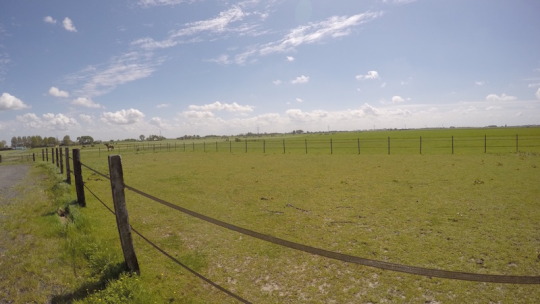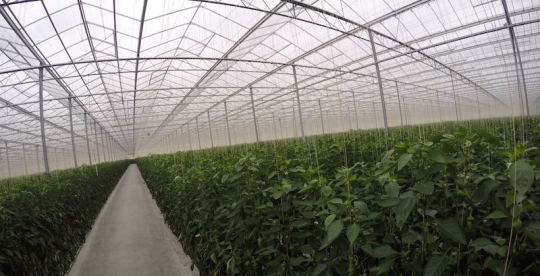Externalized ‘true costs’ of Food

Political, moral, a business issue too; future food production on a shrinking planet has no place to hide!
A universal truth, consumers must know the facts of food. The impact of what reaches the dinner table is far greater than the resulting personal gain or satisfaction. Domestic US food production does not account for waste, environmental impact nor ecological footprint – that’s our actuality! We’ve flattened a circular process into a frozen rope. These additional costs from mining the soil without replenishing systems needed for self-sustaining nutrient cycling have created a never ending waste-stream and defined an intensifying need for persistent inputs. Despite wellness to consumer becoming of greater concern, a “true cost” of our linear food production is only just beginning to be realized with scarcer proximity to natural resources, and has yet to be incurred at the cash-register. With no scope nor expectation of re-payment of this tax, we’ve externalized these “true costs” of cheap food to lessen the vitality of the whole system.
You see, food production has great impact to planet, soil & water. If you believe this to be the case, and appreciate an evolution in US production is required – it‘s pretty straight forward – a bridge must be built. If we want to change this linear system so prevalent in the States, we must embrace with open arms current market leaders engaged in conventional agriculture to now partake in sustainable practice beneficial to their long-term sovereignty. As a call to action for my domestic brethren, we must adapt with empathy and diplomacy to accomplish greater impact. As serial entrepreneur and activist Gary Hirschberg explains “we must take a seat at the table if we want to be a voice of influence.”
When you break down all the factors, the Dutch have a compelling story of free-market success. Business working to help control their own destiny is a much better way to go through transition vs. a fight where you wait to see how hard the stick will strike. Numerous large companies in the Netherlands were proactive in servicing the changing desires of consumers for safe and nutritious food. Getting ahead of the regulatory curve by looking backwards to move forward, it was realized the authenticity in Dutch food production and provenance of farming became worthy of growth & advocacy. All the beneficial environmental and ecological impact was not just icing on the cake, but instead the core to a successful transition to circular.

An epiphany came during my fellowship to the Netherlands – with proof that not only is this the proper thing to do, as this planet is the only home we have to live, but it’s better business. ROI in converting and operating a circular approach has shrunk significantly in the last decade. System efficiencies, lower cost of waste stream and production inputs, economies of scale, better innovation & technology have all taken part in lowering the entry cost of producing circular. As increasing input costs compound with further requirements for more synthetics to produce the same volume of crop, it’s becoming hard to argue that the longevity and ongoing expense of circular is not a cost saver. Like the Dutch has demonstrated, if we employ this refined perspective as part of a true cost of food – taking into account a destiny of further regulation, increased expense and a change in consumer sentiment not be serviced – this puts new glimmers on leaders stepping-up to become accountable for our food actions.
We’ve done a nice job of justifying a lack of accountability for being grand-scale litter-bugs of linear perspective in the States. As the 800lbs Gorilla in global food production, reducing our externalized costs that currently accrue on ecology and the environment will be of great interest to many. Repackaged as opportunity for potential growth, mitigation to climate change, and that of risk mitigation against a public health concern & loss of market-share – we can embrace our mounting waste-streams and that of the imprint on planetary boundaries, through changing the short-cut practices putting us in harms way in the first place.

Aside from the financial driver discussion, we must start acting like responsible adults in managing this inherited dowery of earth’s fertility. That is just commonsense that seems to get strained with tainted short-horizon perspective and credulity. As part of estate planning, how is the health of the planet not of greatest concern in passing wealth & wellbeing to the next generation? Best yet, as a leader of any kind – how do you see yourself in other’s eyes? Are you looked up to as an empathetic individual attune to generation next; or a litter-bug on grand scale? To a man, as we still evaluate atwhatcost is cheap food paid. We deserve much more; leaders must step-up.
To drive broad & diverse consumer adoption of higher-quality food as preventative human and environmental healthcare, many required steps to evolve practice have already been drafted. Learning from close allies, we can gauge success in their tackling of same issue we now face on a shrinking footprint Stateside. From the financial bridge required to support circular production transition; to the appropriation of proper techniques and plans; to a distribution and value-ad frameworks that decommoditize food via technological backstory and provenance; to sharing, testing and monitoring best production practice in reducing the expense of waste in circular agricultural systems – it’s there. So, let’s stand-up like leaders, like parents our kids see us as – to address problems with haste and flip a method of sourcing sustenance corrosive in nature to one taking account for true cost.
